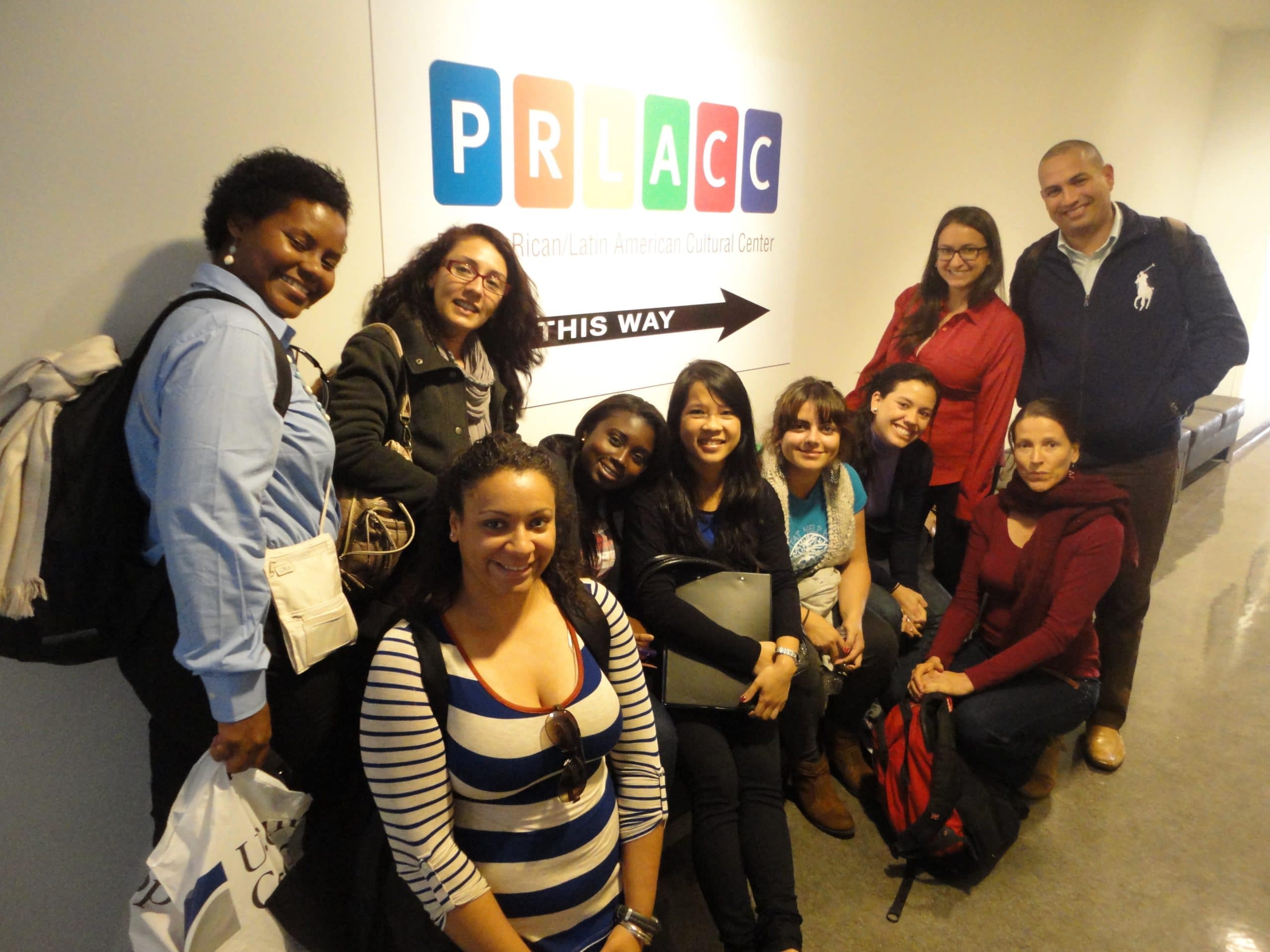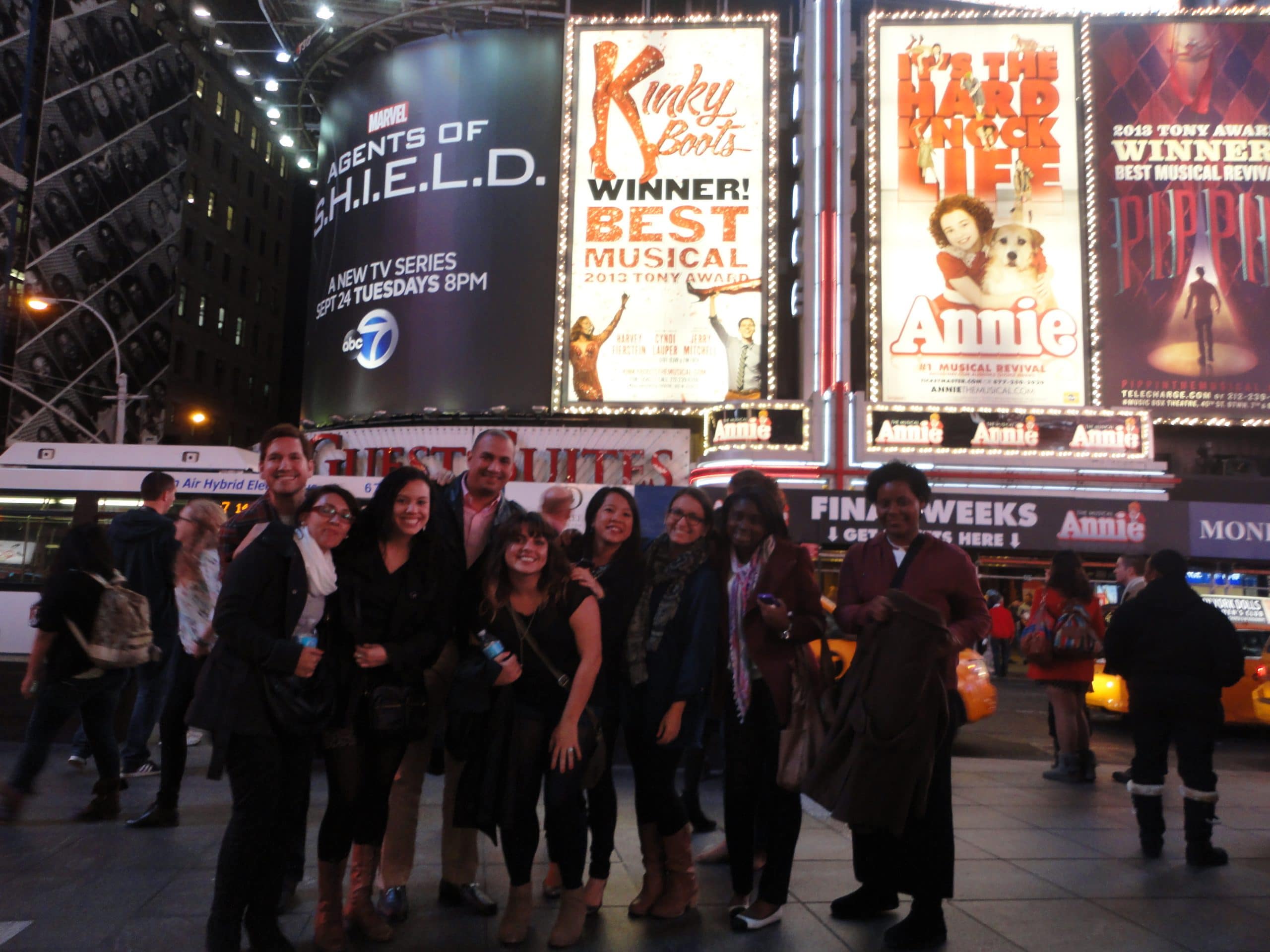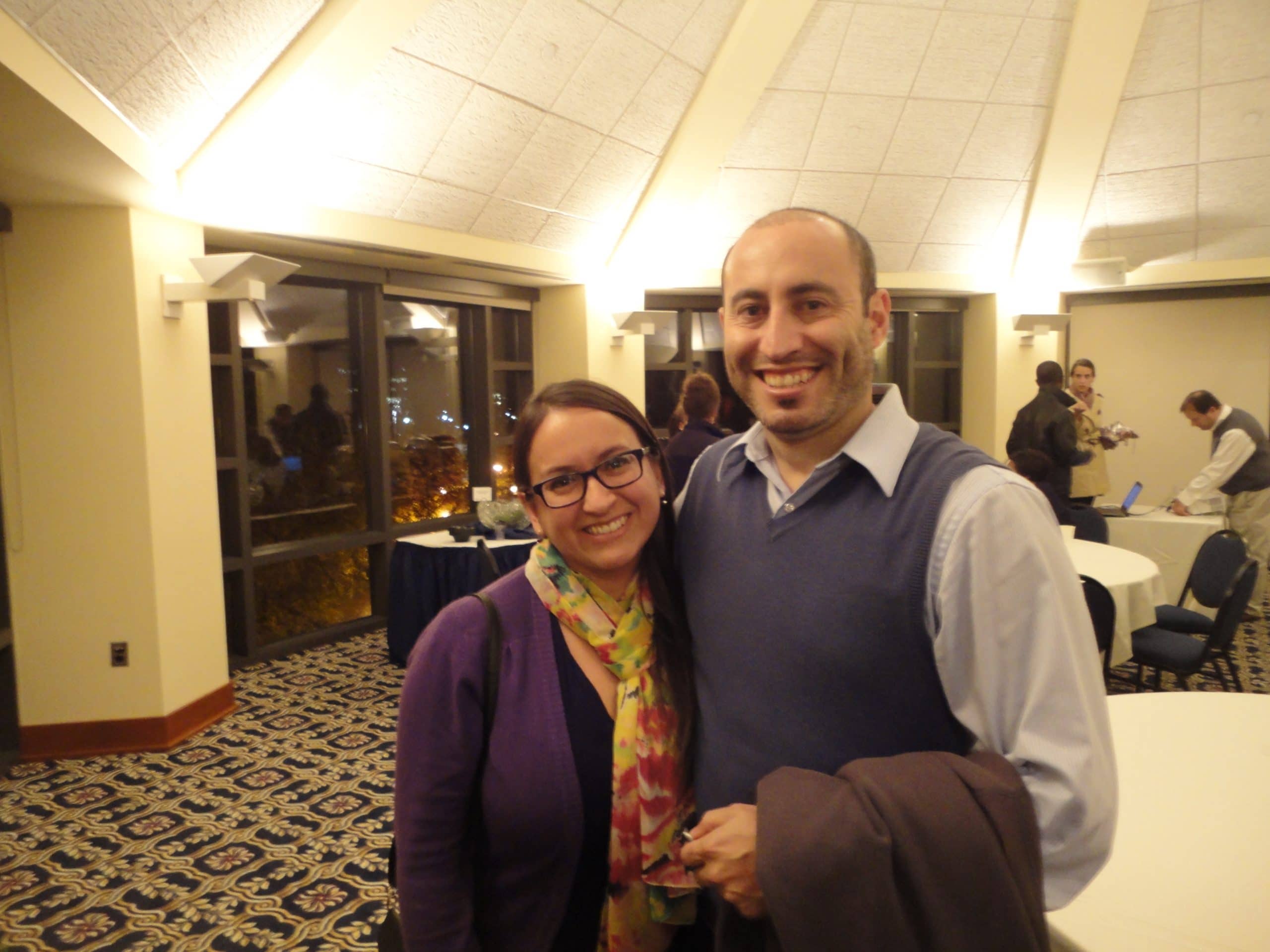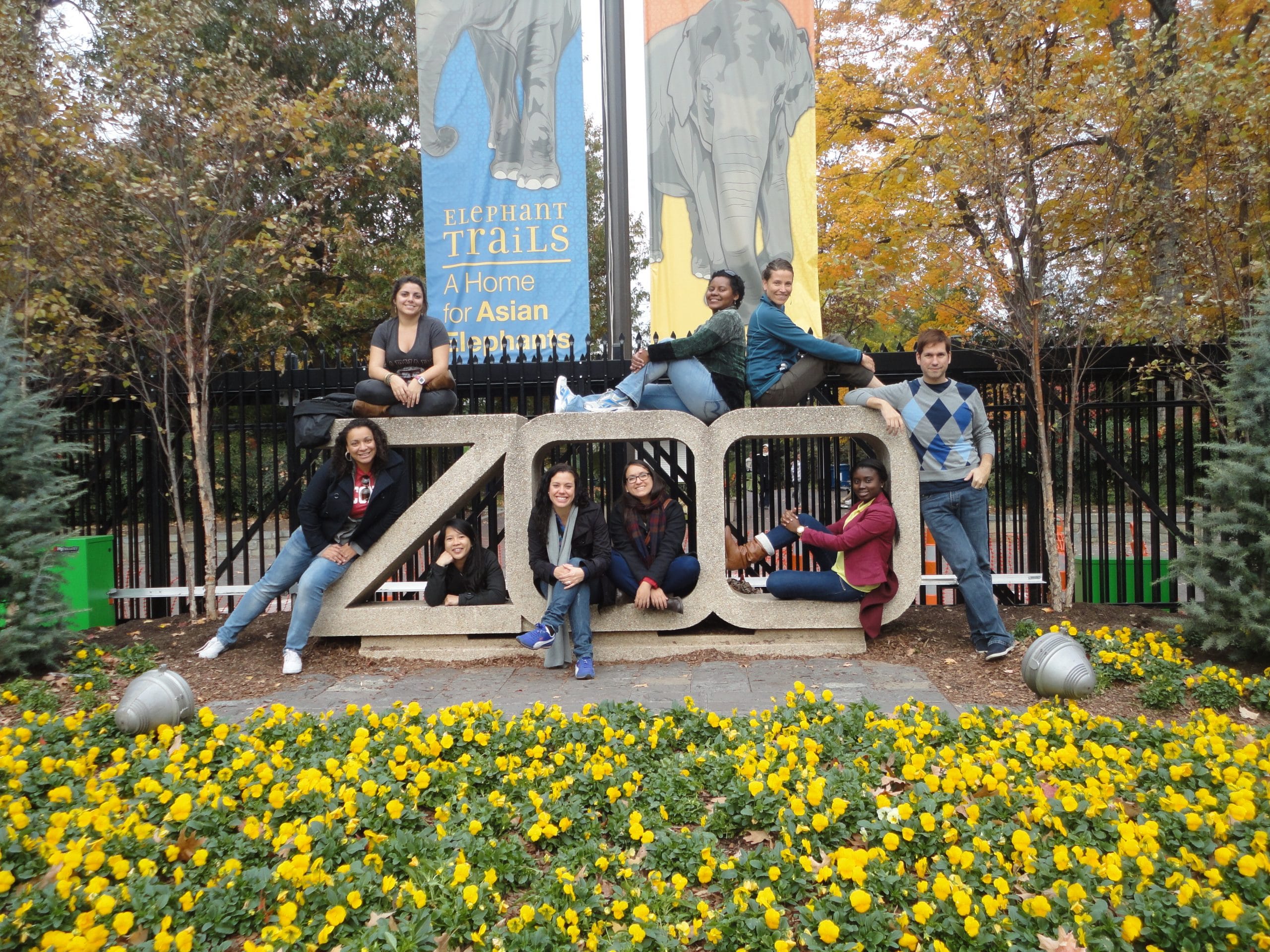
The Professional Fellows Program brings emerging leaders (age 25-35) from around the world to the United States for intensive fellowships designed to broaden their professional expertise. Participants spend 4-6 weeks in the U.S., where they complete individually tailored fellowships in appropriate businesses, government offices, media, non-profit organizations, or business associations. The program also establishes structured interaction among Americans and foreign participants. Participants must be mid-level professionals and be proficient in English. Fellowships are offered twice per year, in the Spring and Fall. Deadlines and eligibility requirements for this program may vary by country.
We talked to Melissa Guadalupe Huertas, a Professional Fellow who spent a month in the USA, to learn more about the program and get some application tips.
1. What inspired you to apply for the US State Department Professional Fellows Program?
I remember that at that point in my life I had been working for a non-profit organization for a few years and I was starting to think of ways we could expand my abilities and our scope of action to have more meaningful impact on the communities we served, but I didn’t feel like I was properly equipped to do much more beyond what my role entailed at the moment. I had finished a degree in Languages Education a few years before, and my professional interests had taken me out of the traditional formal classroom setting to leading more community-driven and informal education experiences. However, I often found myself doubting if I could move forward in a non-traditional career path for an educator.
Then, a friend sent me the call for applications to the US State Department Economic Empowerment Program fellowship. This fellowship offered Latinamerican professionals the chance to travel to the USA for a month of training, job-shadowing, and cultural immersion in the country, as well as a mini-grant to fund a local project upon our return to Latinamerica. It looked like the right opportunity for me! At the same time, it felt super intimidating, and I kept debating with myself about whether to apply or not at the beginning. I didn’t have a professional background in economics, I had never left Peru before, and I wasn’t sure if this experience would fit into what was expected from me at my role at the time. However, my years of professional experience working closely with local community leaders, my background in education, and most of all my desire to learn and do more gave me the courage to put forward an application.
I was very excited about the opportunity to better explore the topic of economic empowerment and community development from practitioners currently “on the field” and also about the possibility of being part of a global, innovative, and diverse cohort of participants who were joining from different parts of Latinamerica. I expected to encounter and learn from various examples of successful economic and educational interventions, to exchange knowledge and experiences, and to return to Peru ready for action!

2. How has the fellowship experience influenced your current work?
I think having this fellowship experience was a total game-changer for my career. The job-shadowing component immersed me in the day-to-day work at the University of Connecticut’s Community Outreach offices. I was able to learn how staff and students were working together with local leaders and institutions to support community development initiatives. Having graduated from college not too long ago, I remember being so impressed to see that the relationships between administrators, students, and community actors were so horizontal and open. This solidified my passion for education as a conduit for social change, and I saw the power of academia when it’s integrated into the fabric of a community.
Upon returning to Peru, I was able to apply the learnings I had acquired around project management and community development into the project funded by our mini-grant. I worked with mothers from one of the communities we served at the time to explore potential entrepreneurial projects they were interested in. A lot of the mothers in this urban community had migrated from more rural areas of the Andes, and we decided to start a small venture where they could develop their knitting skills and turn them into profit. The idea was very straightforward and the mini-grant allowed us to not only provide the seed money needed to launch this entrepreneurial initiative but to also create a robust program for all interested members of the community to participate in. I coordinated the attendance of local entrepreneurs to attend as guest speakers, a partnership with the local AIESEC chapter for training, and community knitting classes. This last component turned into a safe meeting space for women who kept coming back week after week, something we had not anticipated. The professional from the University of Connecticut that I had shadowed was even able to visit my city as part of the fellowship program just as this project was taking off. This experience, of course, was not all roses and rainbows. In the process, I learned valuable lessons about sustainability, identity, and community ownership, as the project couldn’t self-sustain after a couple of rounds of production.
The main before-and-after change I remember getting from this fellowship was the conviction that I could keep expanding my interests and abilities even if my professional background was different from these. It gave me the confidence to see that I was capable of more, the great value of sharing experiences, and the motivation to keep learning, and of course the desire to keep exploring the world. After this fellowship, I went on to my first semi-solo international trip, and later applied to a cultural exchange program organized by the Japanese Cabinet Office called the “Ship for World Youth Leaders” where I shared a month living with youths from 10 different countries. Later on, I decided to leave the comfort of my job and country, and move to Panama and later to Ecuador to continue exploring a career in the field of education, community development, and cross-cultural understanding. These experiences in turn allowed me to have a diverse and strong background to be awarded a Chevening Scholarship and study for an MA on Education, Gender, and International Development at the University College London. The work I do in my current role as a Program Officer, Education for the Wikimedia Foundation is greatly influenced by the perspectives that I have gained through all of these experiences, but it all started with my decision to apply for this fellowship.

3. What tips would you give others applying to the US State Department Professional Fellows Program Fellowship?
It might sound like a cliché, but the main tip I would give is: Just apply! Be confident that your skills and experiences are unique and valuable! I think the main perk of a fellowship like this one is that it allows you the flexibility to go beyond your immediate professional background and open your eyes to new opportunities and perspectives. It gives you hands-on experience and full immersion guided by amazing professionals with a wealth of knowledge and experience. Are you interested in tech but your academic background is in sociology? Are you passionate about women’s rights but your academic background is in agriculture? It’s exactly this diversity of experience and interests that makes you valuable! The experiences you can get on the field through a fellowship will push you in the right direction to pursue your passion and combine it with the abilities you have already cultivated over the years, trust me. The cohort I was part of was a wonderful mix of professionals from such diverse backgrounds and communities of practice, no two were the same! But what united us in that program was a real passion and care for community service.
Also, don’t sell yourself short and reach out to your support system! My friends and colleagues supported me with proofreading my essays, encouraging me when I was battling with self-doubt, reminding me of my passions and leadership journey, and helping me reach all the needed deadlines. Your community is your strength!

Melissa Guadalupe Huertas serves as an Education Program Officer at the Wikimedia Foundation, the non-profit that hosts Wikipedia and its sister projects. Her work supports education actors and free-knowledge advocates with resources and strategies that help integrate Wikimedia projects into pedagogical processes. She has 10 years of professional experience leading diverse education initiatives in Latin America focused on education for community development, leadership, and cross-cultural collaboration. She has represented Peru in professional development and cultural exchange programs in the USA and Japan. She’s a former Chevening Scholar and holds an MA in Education, Gender and International Development from the Institute of Education at University College London, and a BA in Languages Education from Universidad César Vallejo (Trujillo, Peru). Melissa spends her free time reading science fiction, painting, making lists, and hoping for a future where going to rock concerts is still a thing we can do.
Interested in applying? Bookmark the Professional Fellows Program to your ProFellow account.
© Victoria Johnson 2020, all rights reserved.